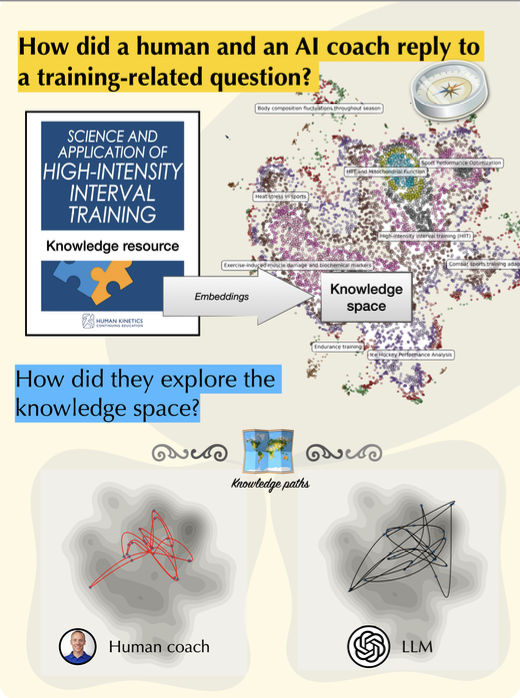AI Coaching Computational Paths of Knowledge

This work explores the transformative impact of Large Language Models (LLMs) on AI-driven coaching, positioning them as a fundamental shift in how knowledge is structured and utilized within sports science.
The paper delves into how LLMs can simulate aspects of human reasoning by navigating complex semantic spaces derived from textual data, thereby extending AI’s role beyond simple query-response systems. It proposes that LLMs are capable of representing the underlying structure of the world as described through language.
A multi-step methodology, including Retrieval-Augmented Generation (RAG) pipelines and semantic trajectory analysis, demonstrates how both human coaches and LLMs can follow coherent, albeit distinct, reasoning pathways in response to complex coaching queries. The research introduces an agentic framework where multiple LLMs are orchestrated to collaboratively enhance the AI coaching experience by integrating functionalities like web search, database access, and code execution.
Ultimately, this work emphasizes the critical need for sport scientists and practitioners to develop a nuanced understanding of AI capabilities and limitations, advocating for responsible and sustainable integration of LLMs to augment human expertise rather than replace it.
For a comprehensive review of the methodology and its implications, refer to the full paper.
